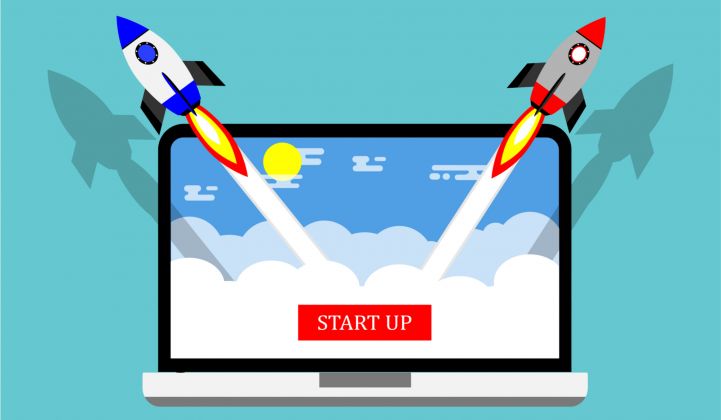American Electric Power launched the latest utility contest last week for startups with technologies that could help solve its various future grid challenges, with the potential for investment and real-world deployments as the prize.
Through April 7, AEP’s IlluminationLab program is taking applications from startups with solutions in four key technology categories: customer experience, grid optimization, electric mobility, efficiency, and operations and maintenance, as well as a “wildcard” category for unexpected entries.
From this pool of applicants, AEP will pick up to 20 teams to attend a May “bootcamp” where they can work with AEP executives “to define a clear use case for collaboration.” Teams will then advance to a 10-week proof-of-concept program to build the test case for their technology with some of the company’s top R&D executives, where they “will access data, gather insights and aim to test their products/services in live customer environments.”
The program will culminate with a demo day in September, where companies will present their progress over the 10 weeks and offer proposals for “future engagement with AEP.” While it doesn’t specify what that engagement might look like, it does include potential funding from AEP, as well as from L Marks, the U.K.-based technology accelerator program adviser that’s organizing the program.
As a segment of the broader world of utility investment in technology innovation, contests like AEP’s IlluminationLAB are a relatively tiny slice of the pie. On the early-stage investment side of things, energy startup incubators abound, from broader public-private partnerships such as Massachusetts’ Greentown Labs and Hawaii’s Elemental Excelerator, to specifically utility-driven endeavors like Enel’s Innovation Hub or Shell’s GameChanger Accelerator.
At the larger scale, utilities are making investments and acquisitions themselves, as with the rush of money from European energy companies into grid edge startups, or joining forces to back startups that meet their future strategic needs, as with Energy Impact Partners’ investment and credit funds.
Utility contests have yielded some big opportunities for a handful of startups. One noteworthy example is Virtual Peaker, a Kentucky-based startup that was one of five to win Vermont utility Green Mountain Power’s Inspire Space contest in 2016. Later that year, GMP picked Virtual Peaker’s software to orchestrate the distributed energy resources — Nest smart thermostats, Tesla Powerwall residential batteries and smart water heaters enabled by startup Aquanta — that it’s offering customers to help manage local and systemwide grid needs.
Elta Kolo, grid edge analyst with Wood Mackenzie Power & Renewables, noted that contests like these are a good way for startups to manage the particular challenges of doing business with utilities, such as the longer-than-usual sales cycles and lengthy rounds of testing needed before a promising technology can be deployed at scale. As for the opportunities, “Just look at Shell’s strategy of investing and then acquiring,” she said.
AEP has previous experience in the startup accelerator space as co-sponsor of the Columbus Smart City Accelerator in 2017, which provided winning companies access to up to $100,000 in investment from venture capital firm NCT Ventures. This effort was part of a broader push launched in 2016, when the city won a $40 million Department of Transportation grant to develop a “model for connected cities of the future,” along with a $10 million grant from Microsoft co-founder Paul Allen’s Vulcan Inc. to “focus on decarbonization of the energy and transportation sectors.”
AEP Ohio is bringing its own ratepayer-funded investments to the Columbus Smart City project. Last year, state utility regulators approved its plan to spend $10 million on electric vehicle charging infrastructure infrastructure rebates and support, as well as $10.5 million to pursue microgrid projects with third parties. Late last year, AEP Ohio picked EV charging network companies ChargePoint and Greenlots as its EV infrastructure program partners, opening applications for a program that’s expected to nearly double the number of EV charging stations in Ohio, or about 300 Level 2 EV charging stations and at least 75 DC fast-charging stations.
AEP picked electric mobility as one of its four areas of interest for startups applying to IlluminationLab, noting that it’s seeking “technologies that are increasing the adoption of electric mobility by customers and reduce the costs for the infrastructure needed to support this adoption.” On the grid optimization front, it’s seeking technology that can “cheaply control and/or shift energy peaks locally rather than across the entire grid and in turn benefit our customers financially.”
The utility's interest in “efficiency, operations and management” startups is focused on “transferring traditional processes into a digital world as much as possible,” as well as tapping the opportunities to aggregate this more accurate data to improve efficiency.
The contest's rather vague guidance for startups with “customer experience” innovations simply notes that most of AEP's communications with its customers are via bill and mobile applications focused on energy consumption, billing and outage information, and that it wants to be “more proactive to better understand consumer behavior and provide personalized communications.”




